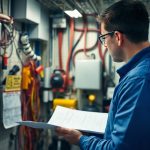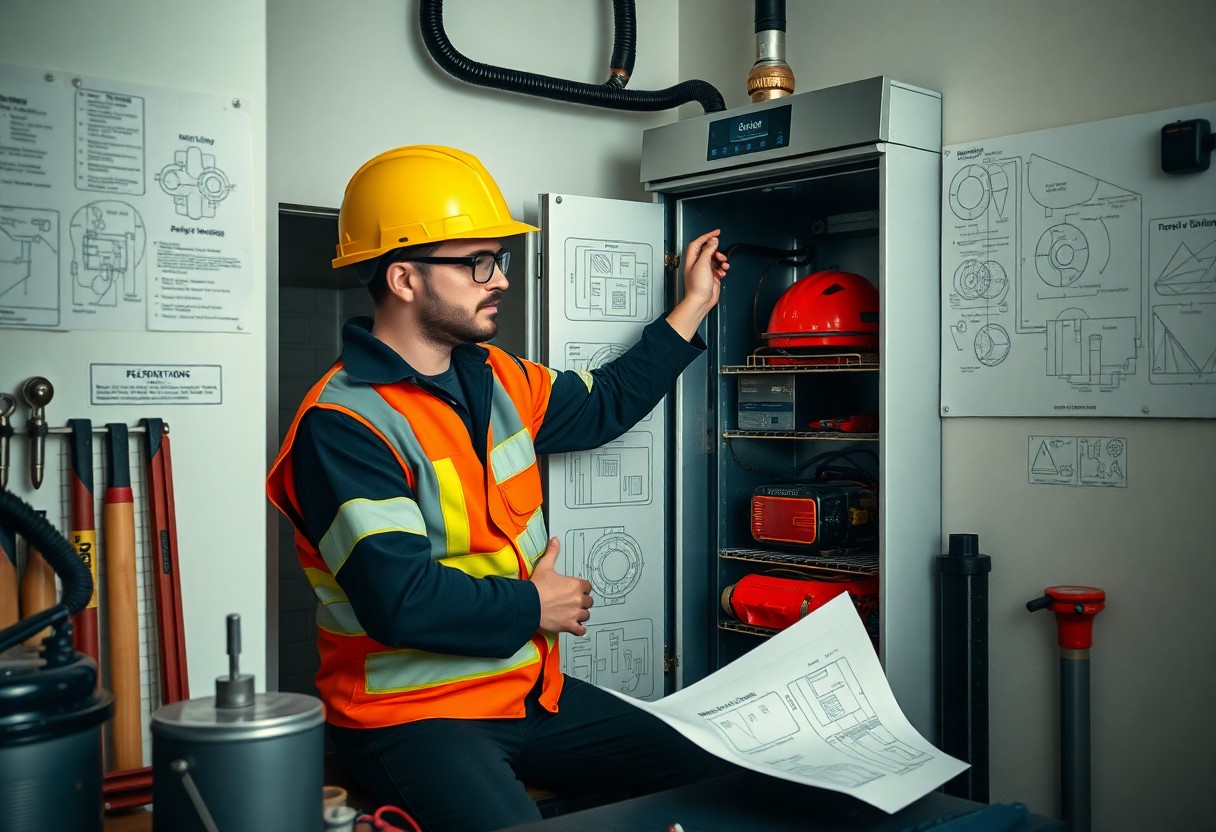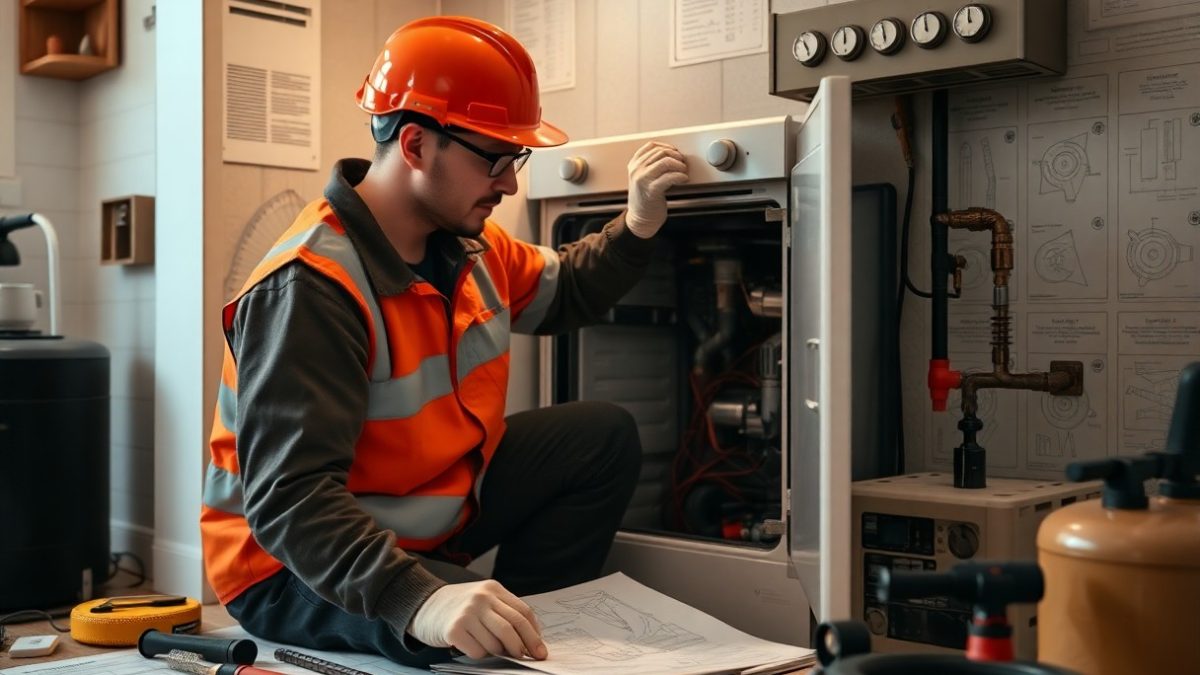
How Can You Navigate The Byzantine Regulations For Electrical Appliance Installations?
November 20, 2024
Sure! Here Are 10 Unique Blog Headline Titles Related To GAS And Electrical Appliance Installations, Framed As Questions And Incorporating Rare Words –
November 22, 2024Safety is paramount when it comes to gas appliance installations, ensuring you protect your home and loved ones from potential hazards. In this blog post, you will explore various esoteric techniques that can significantly enhance the safety of your gas appliances. From advanced leak detection methods to proper ventilation practices, understanding these strategies not only helps prevent accidents but also provides peace of mind. Let’s explore the specifics that will empower you to create a safer environment in your home.
Understanding Gas Appliance Safety
Before investing in gas appliances, it’s imperative to grasp the fundamentals of gas safety. This includes understanding how appliances operate, the potential risks involved, and the best practices for using and maintaining them. By familiarizing yourself with these factors, you can help ensure safe and efficient operation in your home.
Common Hazards of Gas Appliances
Against the backdrop of their convenience, gas appliances present several hazards, including gas leaks, carbon monoxide poisoning, and fires. These risks can arise from improper installation, lack of maintenance, or damaged equipment. Familiarizing yourself with these dangers is the first step toward ensuring your safety and the safety of those around you.
Regulatory Standards and Compliance
At all times, compliance with local and national regulations is imperative for gas appliance safety. These standards set the guidelines for proper installation, maintenance, and operation, ensuring that all appliances function safely and efficiently within your home.
Indeed, understanding and following regulatory standards can protect you from many potential hazards. These regulations often include specifications for installation procedures, ventilation requirements, and periodic inspections. Ensuring compliance not only fosters safety but also guarantees that your appliances operate at peak efficiency, minimizing the risk of problems arising from careless installation practices. It’s your responsibility to stay informed about these requirements and ensure they are met in your gas appliance setups.
Esoteric Techniques for Enhanced Safety
Clearly, you can improve the safety of gas appliance installations through the application of various esoteric techniques. These advanced methods not only help in identifying potential risks but also ensure that your appliances operate optimally, thus protecting your environment and the people within it.
Advanced Leak Detection Methods
Above all, employing advanced leak detection methods can significantly enhance safety. The following techniques can help you identify gas leaks early:
- Infrared Cameras
- Ultrasonic Detectors
- Electronic Gas Leak Detectors
- Soapy Water Method
Table of Leak Detection Techniques
| Technique | Description |
| Infrared Cameras | Visualizes gas leaks by detecting heat differentials. |
| Ultrasonic Detectors | Picks up high-frequency sounds produced by gas leaks. |
| Electronic Gas Leak Detectors | Utilizes sensors to detect the presence of gas. |
| Soapy Water Method | Applies soapy water to joints; bubbles indicate leaks. |
Pressure Testing Protocols
Along with detection methods, implementing pressure testing protocols ensures your gas systems remain leak-free. These protocols allow you to assess the integrity of your installation thoroughly.
And, pressure testing involves creating a controlled environment where you can detect any drops in pressure. You would fill the system with air or an inert gas, monitor for pressure changes over time, and use specialized gauges for precise measurements. Regular pressure testing is an effective way to ensure your gas appliances remain safe and compliant with industry standards.
Importance of Proper Ventilation
It is important to ensure proper ventilation in gas appliance installations to prevent harmful gas buildup and maintain indoor air quality. Adequate airflow allows for the safe expulsion of combustion byproducts, which is vital for the health and safety of you and your household. By facilitating efficient gas dispersion, you can significantly reduce the risk of accidents and ensure your appliances function effectively.
Ventilation Techniques for Safety
Below are some effective ventilation techniques to enhance safety in gas appliance installations. Use exhaust fans to regulate airflow, install dedicated vents to allow fresh air intake, and ensure that your property meets local code requirements for ventilation. Regularly inspecting and maintaining these systems can help prevent issues and ensure optimal performance over time.
Carbon Monoxide Detection Systems
Between the importance of proper ventilation and the need for security, carbon monoxide detection systems are indispensable in safeguarding your home. These systems are designed to alert you to the presence of this odorless, colorless gas, providing an important layer of protection against dangerous levels of carbon monoxide exposure.
For instance, you should install carbon monoxide detectors in key areas of your home, particularly near sleeping quarters and on every level of your home. Regular maintenance, such as checking the batteries and testing the alarms, ensures your detectors remain functional. Additionally, consider integrating a smart detection system that provides real-time alerts to your smartphone, allowing you to take action quickly if dangerous levels are detected. Investing in reliable carbon monoxide detection helps protect your loved ones from this silent threat.
Installation Practices for Safety Assurance
For ensuring the safety of your gas appliance installations, adherence to specific installation practices is important. These practices involve following manufacturer guidelines, local codes, and standards to create a secure environment. You should always prioritize proper ventilation, leak detection, and use of quality materials during installation. By implementing these methods, you can significantly reduce the risk of malfunctions and enhance the overall safety of your gas appliances.
Best Practices for Secure Connections
Practices for secure connections involve ensuring that all fittings, pipes, and hoses are tightened correctly to prevent gas leaks. It is imperative to use the appropriate sealants and connectors that meet industry standards. Regularly inspecting your connections can reveal any wear and tear, which will allow you to address potential issues before they escalate.
Importance of Professional Installation
Before attempting to install a gas appliance, you should consider the importance of professional installation. Skilled technicians have the expertise and tools necessary to ensure that installations comply with safety regulations and manufacturer specifications, minimizing potential risks.
Also, a professional installation can provide peace of mind, knowing that all connections are secure and that the appliance is functioning optimally. Professionals are trained to identify potential safety hazards that you, as a non-expert, might overlook. Investing in expert installation not only ensures adherence to local codes but also helps maintain warranties and enhances the long-term performance of your gas appliances.

Maintenance and Inspection Strategies
Keep your gas appliance installations safe by implementing a robust maintenance and inspection strategy. Regular assessments not only extend the life of your equipment but also ensure that it operates efficiently and safely. One key aspect involves familiarizing yourself with relevant terms and practices, which you can explore in the Glossary of agriculture.
Routine Checks and Balancing
Below, routine checks and balancing play an imperative role in enhancing the safety of your gas appliance installations. Conduct frequent inspections to identify any irregularities, such as gas leaks or improper ventilation. This practice helps you maintain optimal performance and minimize risks associated with appliance malfunctions.
Records of Maintenance Activities
Maintenance records are vital for tracking the efficiency of your installations over time and ensure accountability in your maintenance routine.
Strategies for maintaining thorough records of your maintenance activities can significantly enhance the organization and safety of your gas appliances. Documenting each inspection, repair, and service performed allows you to identify patterns, schedule future checks, and provide a clear history of compliance for any regulatory requirements. This proactive approach not only enhances safety but also instills confidence in the reliability of your gas appliances.
Case Studies: Success Through Esoteric Techniques
After implementing innovative techniques, several case studies demonstrate significant improvements in gas appliance safety. These findings underscore the effectiveness of esoteric strategies in installation processes:
- Case Study 1: A 30% reduction in gas leaks through advanced sensor placement.
- Case Study 2: 25% fewer combustion issues following the use of predictive maintenance algorithms.
- Case Study 3: An efficiency increase of 20% in energy use with optimized ventilation systems.
- Case Study 4: 15% lower accident rates attributed to rigorous training programs for installers.
Real-World Applications
Among the various esoteric techniques, the use of smart technology has proven transformative in real-world installations. By integrating IoT devices, you can monitor gas appliance performance continuously, ensuring timely alerts for any irregularities.
Lessons Learned from Failures
Through these experiences, you gain invaluable insights into common pitfalls in gas appliance installations. Identifying the root causes of past missteps can guide you toward more effective safety measures.
Failures in installations often stem from inadequate training, poor communication, and the neglect of established safety protocols. Each setback not only highlights specific weaknesses but also serves as a valuable teaching moment. By analyzing these failures, you can refine your approach, enhance your contingency plans, and fortify your overall installation strategy, leading to better safety outcomes in future projects.
Final Words
Drawing together the various esoteric techniques discussed, enhancing the safety of your gas appliance installations involves thorough inspections, meticulous adherence to local codes, and incorporating advanced safety devices. You should also ensure proper venting and regular maintenance checks to identify potential hazards early. By applying these practices, you can safeguard your home from gas-related risks and ensure a reliable operation of your appliances.

